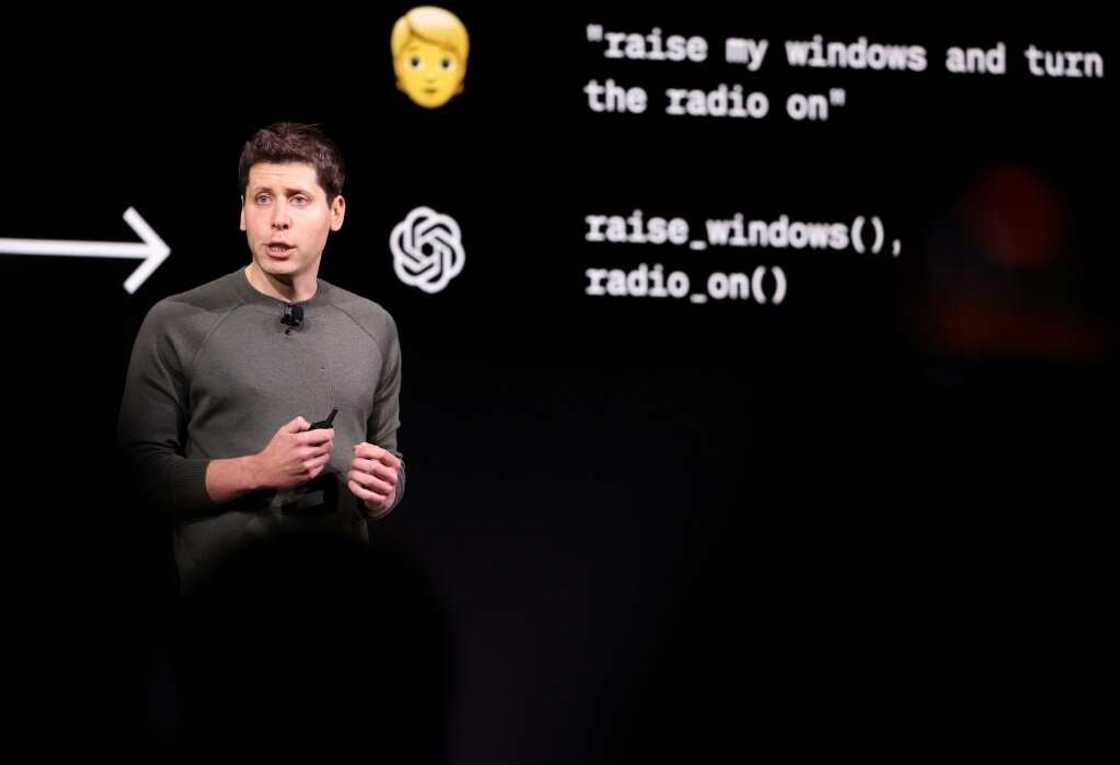OpenAI sees a future of AI 'superpowers'

Source: AFP
ChatGPT maker OpenAI on Monday enticed developers with lower prices and the ability to easily tailor artificial intelligence "agents" to help with anything from laundry advice to contract negotiations.
Dreams of the benefits of generative AI along with fears of the technology's risks have been hot topics in the tech world since ChatGPT made its blockbuster debut a year ago.
"We will be able to do more; to create more, and to have more," Open AI chief executive Sam Altman told developers at the gathering in San Francisco.
"As intelligence is integrated everywhere, we will all have superpowers on demand."
More than 2 million developers are building on the OpenAI platform, while more than 100 million people use ChatGPT weekly, according to the San Francisco based startup.
"About a year ago, November 30, we shipped ChatGPT as a low-key research preview," Altman said.
PAY ATTENTION: Сheck out news that is picked exactly for YOU ➡️ find the “Recommended for you” block on the home page and enjoy!
"That went pretty well," he quipped.
The launch of ChatGPT ignited an AI race with contenders including Amazon, Google, Microsoft, and Meta.
Altman has testified before US Congress about AI and spoken with heads of states about the technology.
Pressure has ramped steadily to regulate AI to control for risks such as its use in bioweapons, misinformation and other threats.
President Joe Biden issued an executive order just weeks ago on regulating artificial intelligence, aiming for the United States to "lead the way" in global efforts at managing the new technology's risks.
The order directs federal agencies to set new safety standards for AI systems and requires developers to "share their safety test results and other critical information with the US government," according to a White House statement.
The world's first major summit on artificial AI safety took place last week in the UK with political and tech leaders discussing possible responses to the society-changing technology.
'Smarter model'
Altman announced a "Turbo" version of OpenAI's leading software along with reduced pricing in moves that could fuel spread of the technology.
"It's a smarter model," Altman said of ChatGPT Turbo.
"We decided to prioritize price first, but we're going to work on speed next."
OpenAI is rolling out the ability to create custom "agents" called "GPTs" capable of handling specific tasks, such as business negotiation advice, tips on removing stains from laundry, help with homework, and tech support, it said in a blog post.
"Anyone can easily build their own GPT - no coding is required," OpenAI said.
"You can make them for yourself, just for your company’s internal use, or for everyone."
Later this month, OpenAI will launch a GPT Store and plans to add a way for developers to make money based on how many people use their GPTs, according to the company.
"I'm really looking forward to Turbo and everything else that you have coming," Microsoft chief executive Satya Nadella said after joining Altman on stage.
"We love you guys; you guys have built something magical."
Microsoft has invested billions of dollars in OpenAI and has woven the company's technology into offerings such as Bing.
Source: AFP





